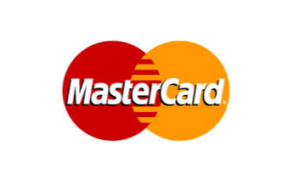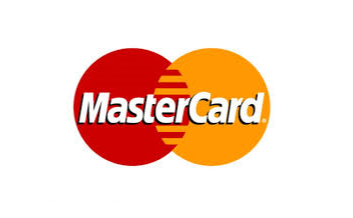- Extends effort beyond 500 million people financially included over the past five years
- Includes 50 million small businesses and 25 million women entrepreneurs
- Maximizes technology and partnerships to deliver aid, insights and access to businesses and communities
- Blends support of economic well-being and health
In this time of crisis, Mastercard has expanded its worldwide commitment to financial inclusion by pledging to bring a total of 1 billion people and 50 million micro and small businesses into the digital economy by 2025. As part of this effort, there will be a direct focus on providing 25 million women entrepreneurs with solutions that can help them grow their businesses.

The impact of COVID-19 has made it even more pressing to support inclusive growth in Asia Pacific, which is home to 60 percent of the world’s population and the fastest-growing economic region[1]. In an update in April, the World Bank said 24 million fewer people will escape poverty across the East Asia Pacific region this year than would have without the pandemic.[2]
“If we’re going to recover in any sort of long-term, sustainable way, we have to make sure that everyone is included. Getting people access to the digital economy is a critical part of that,” said Ajay Banga, Chief Executive Officer at Mastercard. “This is so much more than philanthropy. This is an opportunity to develop commercially-sustainable and scalable social impact with government and private sector partners – and to do it in a way that helps society-at-large thrive.”
“In the Philippines, Mastercard has been at the forefront of co-creating and scaling digital payment solutions that enable a more inclusive economy. In light of the current situation, Mastercard aims to assist in the efficient and secure distribution of COVID-19 financial aid to targeted Filipino communities by collaborating with local FinTech players and relevant government units. Such partnerships will not only allow financial aid to reach the unbanked and underbanked population in the country, but also provide them enhanced access to a growing digital ecosystem and to Mastercard’s domestic and global acceptance network, including ecommerce,” said Rowell del Fierro, Country Manager, Philippines, Mastercard.
The new commitment – an extension of Mastercard’s pledge in 2015[3] to bring 500 million excluded people into the financial system – builds on the company’s efforts to address the pandemic-related health and economic challenges facing people all over the world.
“The COVID-19 crisis has demonstrated the power of the digital economy to sustain societies and commerce during times of great adversity. It has also shown the extreme disadvantage faced by small businesses and people who cannot participate. For individuals, gaining access to the digital economy means being able to use affordable financial products and services that meet their needs – transactions, payments, savings, credit and insurance,” said Ling Hai, Co-President, Asia Pacific, Mastercard.
“For SMEs, access to the digital economy allows them to manage expenses and invoices and to automate and secure processes, freeing up valuable time and resources to focus on other aspects of running their businesses. SMEs are the foundation of Asia Pacific economies, making up more than 96% of all businesses and providing two-thirds of private-sector jobs[4], so bringing them into the digital economy is a powerful force multiplier for societies. The urgent need to do so has never been greater.”
Over the past five years, Mastercard achieved its initial goal of including 500 million people in the digital economy through more than 350 innovative programs across 80 countries.
In India and Indonesia, Mastercard is introducing the Micro Credit Platform that opens access to credit for shopkeepers who historically have been locked out of the financial system. To empower small business owners with the skills they need to use credit most productively, Mastercard partners with NGOs to provide financial and digital literacy training. In Indonesia, the program has begun to scale with the goal of reaching 10,000 neighborhood shops by mid-2020.
In Bangladesh and Cambodia, Mastercard partnered with the apparel industry to digitize supply chains by introducing a combination of digital payrolls and an educational tool. The Digital Wages Toolkit has been tested in Bangladesh with more than 10,000 women garment workers and has been adapted and translated for use in Cambodia.
In Indonesia, Mastercard launched its first flagship skilling program – Mastercard Academy 2.0 – that is designed to engage and impart essential digital knowledge to different segments of the population. By 2022, the program will equip 100,000 schoolchildren, young adults, entrepreneurs and mid-career professionals with the digital skills they need to thrive and actively participate in Indonesia’s digital transformation journey.
In Vietnam, Mastercard is working with CARE International to assist banks and fintechs to tailor financial services and products to bring women into the financial system and catalyze business growth among women entrepreneurs. The goal is to reach more than 1 million Vietnamese women.
Reaching the 1 billion goal for financial inclusion will require a broad range of efforts, including ongoing work on government disbursement solutions, wage digitization of private sector workers, partnerships with mobile network operators, solutions for gig workers, scaling efforts with fintechs, digital platforms and digital wallets/apps and solutions addressing needs of the financially vulnerable.
The new pledge builds on Mastercard’s efforts to support an inclusive recovery by leveraging the company’s technology, capabilities and reach:
- In the first weeks of the global health crisis, Mastercard, the Bill & Melinda Gates Foundation and Wellcome Trust committed up to $125 million in seed funding to establish the COVID-19 Therapeutics Accelerator.This early leadership to find a treatment has catalysed others to join, including the Chan-Zuckerberg Initiative, the UK government, Novartis and Madonna. Together we are working to speed up the response to COVID-19 by discovering, developing and scaling up treatments for global deployment.
- Mastercard has committed $250 million in financial, technology, product and services support over the next five years to small businesses in the United States, India and other markets to reinforce the vitality of businesses and the financial security of their workers.
- In the Asia Pacific region to date, Mastercard has provided more than 2.2 million women with tools and resources to expand their businesses.
- Mastercard has provided financial literacy training to nearly 200,000 women through various programs in Bangladesh, China, India, Indonesia, Nepal, Philippines, Singapore and Vietnam.
- In India, Mastercard partnered with the Mann Deshi Foundation, a local NGO, to establish the first Chamber of Commerce dedicated to rural women entrepreneurs, enabling 10,000 micro and small businesses to expand by equipping their owners with financial services, mentoring, training and new market opportunities.
- Mastercard Farmers Network is a digital platform that enables farmers in India and East Africa to buy, sell and receive payments for agricultural goods via their phones – without having to walk for hours to the markets. The solution has particular benefits for women farmers, who may have household duties that prevent them from leaving the farm, allowing them to sell their produce and receive payments via a safe, digital environment with greater price transparency and more direct access to buyers. It provides the farmers with a legitimate financial footprint and opens up access to loans and other financial services.
- Mastercard will soon launch a program in India to drive the success of entrepreneurs, increase access to markets for farmers and unlock the economic potential of women.
Notes to editors:
The company has worked with a broad alliance of partners to reach 500 million people previously excluded from the digital economy. Here is what some of them say:
Klaus Schwab, Founder and Executive Chairman, World Economic Forum
“Achieving greater financial inclusion for individuals and small businesses into the digital economy requires collaboration and unique partnerships across sectors and geographies. As companies like Mastercard extend their financial inclusion commitment, society must adapt to meet the evolving needs of everyone in the global marketplace.”
Vipin Sharma, CEO, Access Development Services India
“Micro and small businesses are the foundation of jobs and prosperity in India. Helping to modernize them will be critical to the continued success of India and the achievement of economic growth that is inclusive. A critical first step is empowering these entrepreneurs with digital and financial literacy as well as access to tailored financial services that meet their unique needs. Given that the task is huge and critical, only working in partnerships – across government, civil society, and the private sector – will we be successful.”
Ade Soekadis, Executive Director, Mercy Corps Indonesia
“Today – with the challenges we are experiencing due to COVID-19 – the need for businesses to be included in the financial system is even more important. Without access to savings, credit, and insurance, small businesses are more susceptible to economic fluctuations. Indonesia’s vibrant and burgeoning e-commerce market underscores the need to financially include micro and small entrepreneurs, as this is often a stepping stone to enable businesses to unlock the full benefits of the digital economy.”
Chetna Sinha, founder and Chairperson, Mann Deshi Bank and Mann Deshi Foundation
“Women entrepreneurs are incredible assets. They lead their businesses, creating jobs in the community. They care for their families, educating children and nurturing elderly parents. We know that access to financial services and the dignity of recognition leads to business growth, job creation, and more resilient communities. By financially including women entrepreneurs, we move one step closer to achieving shared prosperity.”




